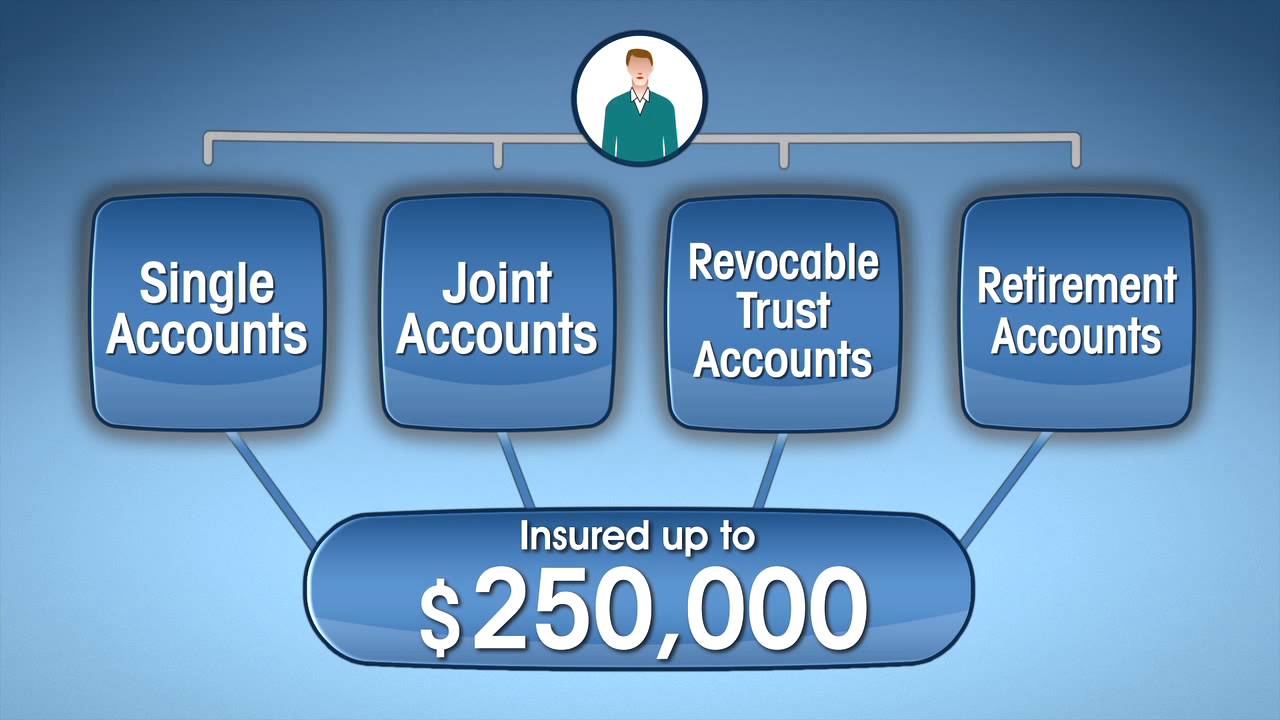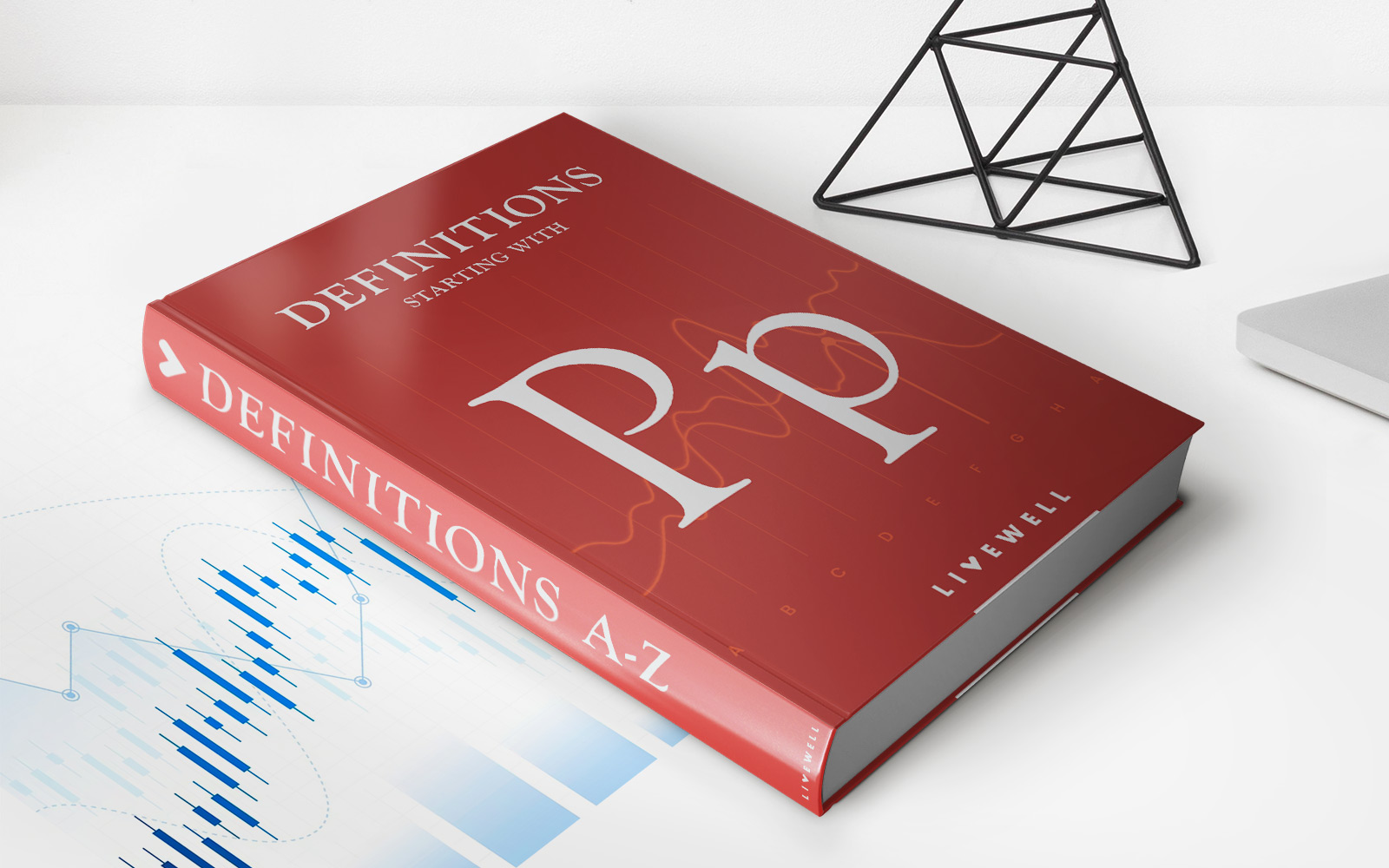

Finance
How To Get A Credit Union Loan
Modified: February 21, 2024
Looking for finance options? Learn how to get a credit union loan and secure the funds you need for your financial goals.
(Many of the links in this article redirect to a specific reviewed product. Your purchase of these products through affiliate links helps to generate commission for LiveWell, at no extra cost. Learn more)
Table of Contents
- Introduction
- What is a Credit Union?
- Benefits of Credit Union Loans
- Eligibility Requirements for Credit Union Loans
- Types of Credit Union Loans
- How to Apply for a Credit Union Loan
- Documentation Needed for a Credit Union Loan Application
- Tips for Getting Approved for a Credit Union Loan
- Comparing Credit Union Loan Rates and Terms
- Paying Back a Credit Union Loan
- Conclusion
Introduction
A credit union loan can be a valuable resource when you need some extra financial assistance. Whether you’re looking to finance a new car, pay for home improvements, or consolidate high-interest debt, credit unions offer a compelling alternative to traditional banks. Unlike banks, credit unions are not-for-profit organizations that are owned and operated by their members, which means their primary goal is to serve the best interests of their members rather than maximizing profits.
In this guide, we will explore what credit unions are, the benefits of credit union loans, the eligibility requirements for obtaining a credit union loan, different types of credit union loans available, and how to apply and get approved. We will also touch on the importance of comparing loan rates and terms and discuss the repayment process.
By the end of this article, you’ll have a comprehensive understanding of credit union loans and be equipped with the knowledge to make an informed decision when considering borrowing from a credit union.
What is a Credit Union?
A credit union is a member-owned financial institution that provides a wide range of financial products and services, including loans, savings accounts, and other financial solutions. Unlike traditional banks, which are for-profit companies owned by shareholders, credit unions are not-for-profit organizations that are owned and operated by their members.
Members of a credit union share a common bond, such as belonging to the same community, working for the same employer, or being part of the same organization. This common bond creates a sense of community and allows credit unions to tailor their services to the specific needs of their members.
Because credit unions are not-for-profit, they typically offer lower interest rates on loans and higher interest rates on savings accounts compared to traditional banks. This is because the primary focus of a credit union is to provide affordable financial services to its members rather than generating profits. Any profits made by a credit union are usually returned to the members in the form of lower fees, higher interest rates, and better loan terms.
Credit unions are governed by a volunteer board of directors who are elected by the members. This ensures that decisions made by the credit union are in the best interest of its members.
Overall, credit unions are known for their personalized service, community-focused approach, and competitive rates. They offer an alternative banking option for individuals and businesses looking for a more customer-centric and affordable financial institution.
Benefits of Credit Union Loans
Credit union loans offer several advantages over loans obtained from traditional banks. Here are some of the key benefits:
- Lower interest rates: One of the primary advantages of credit union loans is that they often come with lower interest rates compared to traditional banks. Credit unions are not-for-profit organizations, so they can pass on their earnings to their members in the form of lower loan rates. This can result in significant savings over the life of the loan.
- Flexible terms: Credit unions typically offer more flexible loan terms than traditional banks. They understand the unique needs of their members and can customize loan options to suit individual financial situations. Whether you need a short-term loan or a longer repayment period, credit unions can often accommodate your needs.
- Personalized service: Unlike big banks, credit unions are known for their personalized and attentive service. Since credit unions are member-focused, you can expect a more personalized approach to managing your loan application and repayment process. Credit union staff often take the time to understand your specific financial goals and provide tailored solutions.
- Lower fees: Credit unions typically have lower fees compared to traditional banks. They are known for minimal account fees, application fees, and prepayment penalties. This can help you save money and avoid unnecessary expenses associated with borrowing from other financial institutions.
- Shared ownership: When you take out a loan from a credit union, you become a member and part-owner of the organization. This means you have a say in how the credit union is run, and you may be eligible to receive dividends or profit-sharing if the credit union performs well financially.
Overall, credit union loans offer the opportunity to save money, receive personalized service, and become part of a community-focused financial institution. If you’re looking for a loan with attractive terms and a customer-first approach, a credit union loan may be the right choice for you.
Eligibility Requirements for Credit Union Loans
Credit union loans are designed to serve the needs of their members, so the eligibility requirements may vary slightly from one credit union to another. However, here are some common eligibility criteria you can expect when applying for a credit union loan:
- Membership: You must be a member of the credit union to apply for a loan. To become a member, you need to meet specific eligibility criteria, such as living in a particular geographic area, being employed by a certain company, or belonging to a particular organization. The membership process is usually straightforward and involves filling out an application and paying a nominal fee.
- Good credit history: Credit unions typically require a good credit history for loan approval. They will review your credit score, payment history, and any outstanding debts or delinquencies. While credit unions may be more flexible than traditional banks in terms of credit scores, having a solid credit history will increase your chances of getting approved for a loan and receiving favorable terms.
- Stable income: Credit unions want to ensure that borrowers have a stable source of income to repay the loan. You will need to provide proof of employment, income statements, or recent tax returns to demonstrate your ability to make regular loan payments.
- Debt-to-income ratio: Credit unions assess your debt-to-income ratio, which is the percentage of your monthly income that goes towards debt payments. They want to ensure that you have enough disposable income to comfortably manage additional loan payments. Generally, a lower debt-to-income ratio indicates a better chance of loan approval.
- Cosigner: If your credit history or income is not strong enough to qualify for a loan on your own, some credit unions may allow you to have a cosigner. A cosigner is someone who guarantees the loan and agrees to be responsible for repayment if the borrower fails to make payments. Having a cosigner with a strong credit history can increase your chances of loan approval and may result in more favorable loan terms.
Keep in mind that while these are common eligibility requirements, it’s important to contact the specific credit union you’re interested in to understand their exact criteria and any additional documentation they may require.
Meeting the eligibility requirements for a credit union loan demonstrates your financial stability and responsibility, which can greatly increase your chances of getting approved for a loan and receiving favorable terms.
Types of Credit Union Loans
Credit unions offer a wide variety of loan products to cater to the diverse needs of their members. Here are some common types of loans you can find at a credit union:
- Personal Loans: Personal loans are versatile loans that can be used for a variety of purposes, such as debt consolidation, home improvements, or funding a major purchase. They typically have fixed interest rates and repayment terms.
- Auto Loans: Credit unions are known for offering competitive auto loan rates. Whether you’re purchasing a new or used car, credit union auto loans can provide flexible terms and low interest rates.
- Mortgage Loans: Credit unions offer mortgage loans for home purchases, refinancing, or home equity loans. They often provide competitive rates and personalized service to help you find the right mortgage solution for your needs.
- Student Loans: Credit unions understand the financial burden that comes with education. They offer student loans to help cover the costs of tuition, books, and living expenses. Credit union student loans often come with attractive interest rates and flexible repayment options.
- Credit Cards: Credit unions offer credit cards with competitive interest rates and favorable terms. Credit union credit cards can provide perks such as rewards programs and lower fees compared to traditional bank credit cards.
- Business Loans: Many credit unions provide loans specifically designed for small businesses. These loans can be used for starting a new business, expanding an existing one, purchasing equipment, or covering operational expenses.
- Lines of Credit: Credit unions may offer lines of credit, which provide flexibility to borrow funds as needed up to a predetermined credit limit. Lines of credit can be used for various purposes, including home renovations, unexpected expenses, or as an emergency fund.
It’s important to note that the availability of specific loan types may vary depending on the credit union. Some credit unions may offer additional loan options not listed here.
When considering a loan from a credit union, it’s a good idea to research the different loan types available, compare rates and terms, and choose the loan that best fits your needs and financial goals.
How to Apply for a Credit Union Loan
Applying for a credit union loan is typically a straightforward process. Here are the general steps to follow when applying for a credit union loan:
- Research and choose a credit union: Before applying for a loan, it’s important to research and compare different credit unions to find the one that offers the loan products and terms that best suit your needs.
- Become a member: To apply for a loan, you need to become a member of the credit union. Check the eligibility criteria and join the credit union by completing the membership application and paying any required fees.
- Gather necessary documents: Prepare the required documentation for your loan application. This may include proof of identity, proof of income, bank statements, and any other documents specified by the credit union.
- Fill out the loan application: Complete the credit union loan application, either online or in person. Provide accurate information about the loan amount, purpose, and any collateral if required.
- Submit the application: Submit the loan application along with the required documentation to the credit union. If applying online, follow the instructions for submitting the application and supporting documents electronically.
- Wait for approval: The credit union will review your loan application and assess your eligibility based on factors such as credit history, income, and debt-to-income ratio. The approval process typically takes a few business days.
- Review the loan terms: If your loan application is approved, carefully review the loan terms, including the interest rate, repayment period, monthly payments, and any associated fees. Make sure you fully understand the terms before accepting the loan.
- Accept the loan: If you agree to the loan terms, sign the loan agreement or electronically accept the loan offer. By doing so, you are confirming your understanding and commitment to repay the loan according to the agreed-upon terms.
- Receive the funds: Once you have accepted the loan, the credit union will disburse the funds to your designated account. The funds can typically be used immediately for the intended purpose.
Remember, the process of applying for a credit union loan may vary slightly depending on the specific credit union. It’s recommended to contact the credit union directly or visit their website for detailed instructions on how to apply for a loan.
By following these steps, you’ll be well on your way to applying for a credit union loan and obtaining the financing you need for your personal or financial goals.
Documentation Needed for a Credit Union Loan Application
When applying for a credit union loan, you will generally need to provide various documents to support your application. The specific documentation required may vary depending on the credit union and the type of loan you are applying for. Here are some common documents you may need:
- Identification: You will need to provide a valid form of identification, such as a government-issued ID card, driver’s license, or passport. This helps the credit union verify your identity.
- Proof of income: To demonstrate your ability to repay the loan, you will typically need to provide proof of income. This may include recent pay stubs, W-2 forms, or income tax returns. If you are self-employed, you may need to provide business bank statements or financial statements.
- Employment verification: Credit unions may require verification of your employment, such as a letter from your employer stating your position, length of employment, and income details.
- Bank statements: You may be asked to provide bank statements for a certain period to show your financial transactions and account balances. This helps the credit union assess your financial stability and repayment capacity.
- Proof of residence: Credit unions may require proof of your current address, such as utility bills, rental agreements, or a mortgage statement.
- Other debts and obligations: You may need to disclose any existing debts or financial obligations, such as credit card statements, loan statements, or alimony/child support documents.
- Collateral documentation: If you are applying for a secured loan, such as a mortgage or auto loan, you may need to provide documentation related to the collateral, such as property deeds, car titles, or insurance policies.
It’s important to contact your chosen credit union and inquire about the specific documentation requirements for the loan you are applying for. They can provide you with a detailed list of documents needed and any additional paperwork that may be required.
Having these documents ready in advance will streamline the loan application process and help ensure a smooth and efficient experience with the credit union.
Tips for Getting Approved for a Credit Union Loan
When applying for a credit union loan, there are several steps you can take to increase your chances of getting approved. Here are some helpful tips:
- Check and improve your credit score: Before applying for a loan, obtain a copy of your credit report and check your credit score. If your score is not where you want it to be, take steps to improve it by paying bills on time, reducing existing debt, and avoiding new credit inquiries.
- Review your credit report: Thoroughly review your credit report and dispute any errors or inaccuracies. A clean and accurate credit report can positively impact your loan application.
- Pay down existing debt: Credit unions will consider your debt-to-income ratio when evaluating your loan application. Paying down existing debt can help improve this ratio and increase your chances of loan approval.
- Ensure steady income: Lenders want to see a stable and consistent income to ensure that you can afford the loan payments. If possible, avoid changing jobs or careers shortly before applying for a loan.
- Gather necessary documentation: Prepare all the required documentation before applying for the loan. This includes proof of income, identification, bank statements, and any other paperwork requested by the credit union.
- Consider a co-applicant or cosigner: If your credit or income is not strong enough, you can increase your chances of approval by applying with a co-applicant or having a cosigner with good credit and income guarantee the loan.
- Work on your debt-to-income ratio: Besides paying down debt, you can improve your debt-to-income ratio by increasing your income. Taking on a part-time job, freelancing, or seeking a higher-paying position can help strengthen your loan application.
- Limit new credit applications: Avoid applying for new credit cards or loans in the months leading up to your loan application. Numerous recent credit inquiries can negatively impact your creditworthiness.
- Shop around: Consider multiple credit unions and compare loan rates, terms, and fees. Shopping around allows you to find the best loan option that meets your needs and offers favorable terms.
- Communicate with the credit union: If you have a special circumstance or a potential issue that may affect your loan application, communicate openly with the credit union. They may be able to provide guidance or offer alternative solutions.
Remember, while these tips can improve your chances of getting approved for a credit union loan, each credit union has its own criteria and processes. It’s essential to contact the credit union directly for specific advice and to understand their requirements.
By following these tips and presenting yourself as a responsible borrower, you can increase your odds of securing loan approval and obtaining the financing you need.
Comparing Credit Union Loan Rates and Terms
When seeking a loan from a credit union, it’s crucial to compare the rates and terms offered by different credit unions to ensure you secure the best possible deal. Here are some key factors to consider when comparing credit union loan rates and terms:
- Interest rates: Interest rates play a significant role in determining the cost of borrowing. Compare the interest rates offered by different credit unions for the type of loan you need. A lower interest rate can save you a substantial amount of money over the life of the loan.
- Loan term: The loan term refers to the length of time you have to repay the loan. Longer loan terms may result in lower monthly payments but may also mean paying more in interest over time. Assess your financial situation and choose a loan term that offers a balance between affordable monthly payments and minimizing overall interest costs.
- Fees: Consider any fees associated with the loan, such as origination fees, application fees, or prepayment penalties. These costs can vary among credit unions and can significantly impact the total cost of the loan.
- Repayment flexibility: Assess the repayment options offered by different credit unions. Some credit unions may allow you to make additional payments or pay off the loan early without incurring penalties. This flexibility can help you save money on interest by reducing the overall term of the loan.
- Loan amount: Check the minimum and maximum loan amounts available from each credit union. Make sure they can accommodate your desired loan amount to meet your financial needs.
- Customer service: Evaluate the level of customer service provided by the credit union. Consider factors such as ease of communication, responsiveness to inquiries, and the availability of support throughout the loan process.
- Member benefits: Some credit unions offer additional member benefits, such as financial education resources, discounts on other services, or access to exclusive loan promotions. Consider these additional perks when comparing credit unions.
It’s worth noting that the credit union’s loan rates and terms may be influenced by factors such as your credit score, income, and the loan amount. It’s important to obtain personalized quotes from each credit union to get an accurate understanding of the rates and terms they can offer you.
By comparing credit union loan rates and terms, you can make an informed decision and select the credit union that provides the most favorable loan terms for your specific needs. Remember to consider the overall cost of the loan, including interest rates and fees, to determine the best financial solution for you.
Paying Back a Credit Union Loan
Once you have been approved for a credit union loan and received the funds, it’s important to understand how to effectively manage and pay back the loan. Here are some key points to keep in mind:
- Create a repayment plan: Take the time to create a repayment plan that fits your budget and financial goals. Determine the amount you need to pay each month, considering the loan term, interest rate, and any other fees associated with the loan.
- Set up automatic payments: Consider setting up automatic payments for your loan to ensure timely and consistent payments. This can help you avoid late payment fees and simplify the repayment process.
- Avoid missed payments: Make every effort to avoid missing loan payments. Late or missed payments can negatively impact your credit score and may result in additional fees or penalties from the credit union.
- Pay more than the minimum: If possible, pay more than the minimum monthly payment. By paying more, you can reduce the overall interest paid and potentially pay off the loan sooner.
- Consider biweekly payments: Making biweekly payments instead of monthly payments can help you save on interest and shorten the repayment term. By paying half of the monthly payment every two weeks, you effectively make an extra payment each year.
- Communicate with your credit union: If you experience financial difficulties that make it challenging to meet your loan payments, reach out to your credit union. They may be able to offer assistance or provide options to help you stay on track.
- Avoid taking on additional debt: While repaying your credit union loan, it’s advisable to minimize taking on additional debt. Taking on more debt can strain your finances and make it difficult to meet your loan obligations.
- Monitor your credit: Regularly monitor your credit report to ensure that your loan payments are being reported accurately. Any errors or discrepancies should be addressed promptly with the credit reporting agency.
- Celebrate progress: As you make progress in repaying your credit union loan, take a moment to celebrate your accomplishments. This can help motivate you to continue making timely payments and reach your goal of being debt-free.
Remember, paying back your credit union loan responsibly not only helps you fulfill your financial obligations but also contributes to building good credit. By managing your loan payments effectively, you can maintain a positive credit history and potentially open doors to more favorable credit opportunities in the future.
If you have any questions or concerns about your loan repayment, don’t hesitate to reach out to your credit union for guidance and support. They are there to assist you throughout the loan repayment process.
Conclusion
Credit union loans offer numerous benefits and can be a viable option for individuals and businesses in need of financing. As member-owned financial institutions, credit unions prioritize serving their members’ best interests and often provide competitive rates, flexible terms, and personalized service.
In this guide, we explored what credit unions are and how they differ from traditional banks. We discussed the advantages of credit union loans, including lower interest rates, flexible terms, and personalized service. We also covered the eligibility requirements for credit union loans, the different types of loans available, and the steps to apply for a credit union loan.
Additionally, we provided tips for increasing your chances of loan approval and highlighted the importance of comparing credit union loan rates and terms. We emphasized the significance of responsible loan repayment, including creating a repayment plan, making timely payments, and communicating with your credit union if you encounter financial difficulties.
Ultimately, credit union loans can be a valuable tool for achieving your financial goals, whether it’s purchasing a car, funding a home renovation, or consolidating debt. By understanding the intricacies of credit union loans and following the guidelines outlined in this guide, you can make informed decisions, secure favorable loan terms, and successfully manage and repay your credit union loan.
Remember, every credit union is unique, so it’s essential to research and reach out to different credit unions to find the one that best suits your needs. Take the time to explore your options, compare rates and terms, and choose a credit union that aligns with your financial goals and values.














